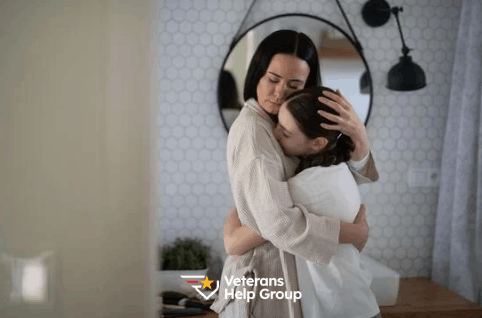Table Of Contents
Chronic multi-symptom illness/Gulf War illness (CMI/GWI) is the defining illness of the Gulf War. However, there are limited studies that have examined the changes over time in the prevalence of these conditions. As such, the study, “Prevalence of Chronic Multi-symptom Illness/Gulf War Illness Over Time Among Millennium Cohort Participants, 2001-2016” aimed to look further into this.
This study represents the largest prospective military cohort study conducted to date and has enrolled over 9,000 Gulf War veterans who have completed up to five assessments since 2001. The three goals of the study were:
- To describe the prevalence of CMI/GWI from 2001 to 2016 in deployed Gulf War veterans relative to non-deployed Gulf War veterans (era personnel) and veterans who did not serve during the Gulf War era (non-era personnel).
- To determine how the prevalence of CMI/GWI changes over time and whether is changes at different rates among Gulf War veterans as compared to the reference groups.
- To conduct analyses by race and ethnicity to address the need for additional information about CMI/GWI among women and racial/ethnic minorities.
The Persian Gulf War
The Persian Gulf War includes service in the Southwest Asia theater of military operations beginning on August 2, 1990. Currently, the period for the Persian Gulf War extends to December 31, 2021. The VA considers service in the following countries and locations as Gulf War service:
- Bahrain
- Gulf of Aden
- Gulf of Oman
- Iraq
- Kuwait
- Qatar
- Saudi Arabia
- The United Arab Emirates
- Waters of Persian Gulf, the Red Sea, the Arabian Sea
- The airspace above these locations
Veterans of Operations Desert Storm and Desert Shield meet the criteria for service during the Persian Gulf War, as do veterans of Operation New Dawn, Operation Iraqi Freedom, and Operation Enduring Freedom. For the current study, the Gulf War period was restricted to August 1, 1990, to July 31, 1991. This encompasses the active conflict as well as many of the environmental hazards, including smoke from burning oil well fires and sarin/cyclosarin dispersion resulting from munition disposal at Khamisiyah,
How was the Study Conducted?
The prevalence of CMI/GWI overtime was compared between three groups of military personnel (9,110 Gulf War veterans; 36,019 era personnel, and 31,446 non-era personnel). Participants completed a baseline survey in 2001 and completed follow up surveys approximately every three years thereafter. The fifth and most recent survey was completed between 2014 and 2016.
CMI/GWI
Generally speaking, CMI/GWI is a complex medical condition that presents as a cluster of chronic, medically unexplained symptoms such as fatigue, pain, gastrointestinal symptoms, respiratory symptoms, dermatological symptoms, and neurological symptoms. In the study CMI/GWI was defined using a modified Center for Disease Control (CDC) definition consisting of endorsement of at least one item within at least two of the following clusters:
- Fatigue Cluster. Consisted of two items: (1) unusual fatigue; and (2) having a lot of energy;
- Musculoskeletal Cluster. Consisted of unusual muscle pains; back pain; and pain in arms, legs, or joints;
- Mood-Cognition Cluster. Consisted of items assessing forgetfulness, confusion, trouble sleeping, nervousness/anxiety, feeling downhearted/blue, irritability, and trouble falling/staying asleep.
Pesticide Exposure
Pesticide exposure was assessed on each survey from two items regarding personal (e.g. creams, sprays, uniform treatments, etc.) and environmental pesticide exposure. Gulf War veterans were more likely to report chemical/biological agent exposure and receipt of the anthrax vaccine than era personnel and non-era personnel.
Results of the GWI Study
The study found that CMI/GWI prevalence increased substantially over the study period among all groups. Gulf War veterans had the highest prevalence of CMI/GWI across the study period. Specifically, the prevalence of CMI/GWI was 28.4 percent among Gulf War veterans, 18.7 percent among era personnel, and 23 percent among non-era personnel. Further, Gulf War veterans without CMI/GWI at the start were likely to screen positive later.
What does this Mean?
Gulf War veterans’ increased risk of CMI/GWI persisted across the study period, which highlights the continued importance of screening and improving treatment options among the population. This study is one of the few data sources that can show how prevalent CMI/GMI is and how it changes over time.
Veterans Help Group have been supporting veterans in getting the benefits they deserve since 1995. Call Veterans Help Group at 855-855-8992 or complete our free veterans benefits case evaluation form.

100% VA Disability Benefits List For 2026
100% VA Disability Benefits List for 2026 When a veteran is approved for VA disability benefits,...

DIC Rates for 2026
DIC Rates for 2026 Dependency and Indemnity Compensation (DIC) can be a lifeline for surviving...

VA Disability Payment Schedule for 2025 (UPDATED FOR 2026)
VA Disability Payment Schedule for 2025 (UPDATED FOR 2026) VA disability compensation provides...





